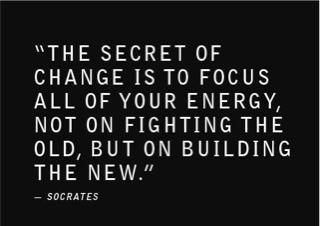I am lucky to work with clients and collaborators who seek to engage in thoughtful conversation about education. Folks who are as dedicated as I am to examining the learning process in a holistic way, rather than just exalting test results. I run a chronic ten minutes late to every session due to my habit of discussing recent educational epiphanies - oh yeah, sorry about that! Therefore, as promised to many of you, click on the links below to read which articles have recently been inspiring us the most at StoneXStone.
Light’s article on How To Live Wisely, eloquently argues how valuable it can be for students to reflect on how their habits may be in conflict with their values and aspirations.
A good question for a student to ask is, “does my behavior match my goals?”
A big part of what we do and how we teach is try to build self-awareness so students can identify and refine their study methods and habits, “Did you study last night? For how long? By doing what? Did you test yourself on the material, how so? Show me.” Specifics matter.
- Did you review all the class materials? PointPower Slides?
- If there was no study guide provided, did you make your own?
- If you missed math problems on past assignments or quizzes, did you review those in preparation for the test so as not to make the same errors?
- Did you know the format of the test?
It’s a gift to work with students, parents, and fellow educators who not only value success, but the ways in which we meet that success. I often cite my refusal to buy into the “GPA performance machine” that dominates tutoring in West Los Angeles. There must be a healthy approach to balancing academic success and stress. While I’m still perfecting our methods at StoneXStone, the one thing I know for certain is students need to define themselves by what matters most: work ethic.
It is the value that will prove most successful in the long-term. Hard tests and teachers will come and go, but what will remain is the self-satisfaction of full commitment. Once we’ve tried our best, we unearth self-acceptance and let go of shallow expectations or superficial comparisons. It’s also the best tool to continue to replicate success again and over again. Not to mention, it may actually be the only thing we genuinely have control over in the academic environment.
A grade a student truly earns provides a sense of achievement we can never bestow them. In that internal space, creativity, innovation, risk-taking, and self-worth flows rather than being stifled by the fear and disapproval of a bad grade. Granted, it takes time and experimentation to secure such self-worth. It may mean being willing to have uncomfortable discussions and reality checks about behavior and study habits.
Still though, I find valuing hard work a much healthier and worthier goal than the empty pursuit of a grade. Dare I say, it’s way more intrinsically motivating?
Some of our best learning experiences have been when we’re willing to take a step back and encourage our students to execute what we’ve taught, even if that means not booking that extra study session. It’s a tough call sometimes; I wish I always knew the right moment when to pull back with a student or to push forward with extra time. Not only does it vary student to student, but sometimes it varies class to class, or even test to test. To be fair, some students just need more help; it needs to be judged on a case by case basis to determine where to draw the line of support.
Another article worth reading is Bruni’s The Myth of Quality Time. While not focusing on education explicitly, it makes a powerful case for how connection does not run on a schedule. Besides being a beautiful tribute to family life, I believe this is also true for how emotional maturity evolves.
I’m sure you’ve heard me say this before, but sometimes we “just have to keep having the conversation” until a student is able to internalize the significance of what we’re trying to teach. Moreover, I wish learning was a simple, straight-forward process. It would make my job so much easier! Instead it’s a relentless devotion to hard work, flexibility, and self-discovery.
You might also want to check out this recent hot-button exchange on NPR about the “overparenting’ crisis. #preachit #westsidemuch
I hope you enjoy these articles as much as we did. If you would like to be removed from occasionally receiving articles in the future, just let me know. I get it!
xoxo,
Ash

